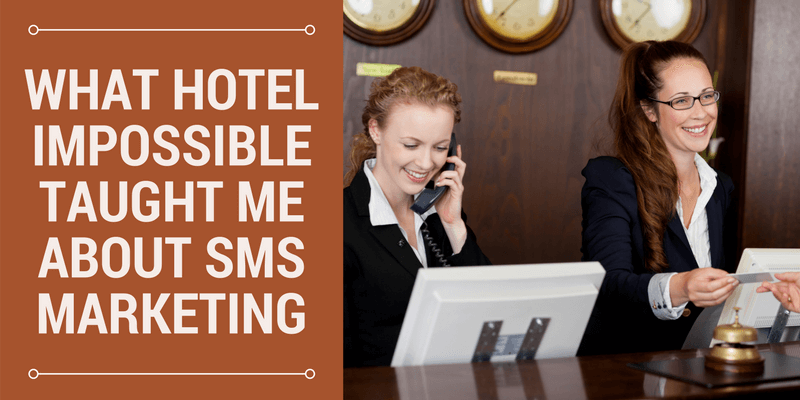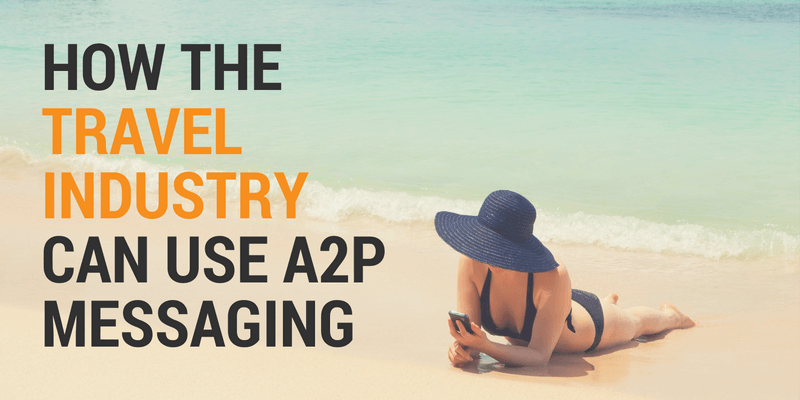How to Turn SMS Messages Into Better Reviews for Your Hotel

There’s no doubting the power of reviews in today’s world. Social media and review sites like TripAdvisor give potential visitors a pretty good idea of what to expect at a hotel without ever having to visit it.
That’s one reason ensuring guests get the best customer service is high on a hotelier’s list of things to do. If that’s true for you, read on to see how sending SMS messages to your guests can improve your guest satisfaction ratings.
Impact Of Reviews
To keep things in perspective, here is some data from a study done by the Preston Robert Tisch Center for Hospitality and Tourism at New York University.
- Travelers are 3.9 times more likely to choose a hotel with higher review scores when the room price is the same
- When given the option, travellers will book a more expensive hotel with higher ratings over a less expensive one with lower ratings
- 76% of travellers are willing to pay more for hotels that have higher ratings
More data from Travelocity showed just a single point increase on a five-point scale (3 stars to 4 stars for example) means hotels can charge 11.2% more and still keep the same occupancy rate.
The question is, how can you get that extra star or review points? Enter SMS messaging.
SMS Examples
I’ve read in many places that hotels received better reviews that could be directly attributed to the use of SMS messaging. Unfortunately, the sources for those statements were never mentioned (I’m a stickler for finding original sources), so I can’t quote you the definitive study that proves it.
But what I did find were two examples that can help make the case. One is an anecdotal example pulled from TripAdvisor. The other one is a limited study of a hotel group “left unnamed” discussed in an article.
The claim that SMS messages are directly responsible for improved ratings is based on a couple different ideas. First, good communication often helps resolve guest issues, which means they are likely to leave a positive review. SMS is quick and very familiar to guests so it’s a perfect choice to use.
Second, is when guests leave specific positive comments about using SMS in their reviews, we can assume SMS helped contribute to the positive review (the opposite may also be true too). Here’s an example in the image below.
It’s pretty easy to see they were impressed with the use of SMS messaging at that hotel.
My second example comes from an article on tnooz.com. It recounted an unnamed hotel brand that experimented with SMS messaging. It tested it out on half of their customers, and the other half only received the current standard communications (via phone, email, in-person, etc.).
The SMS messaging side did so well the hotel brand implemented it and saw a 20% boost in its net promoter score on average. Assuming the article is accurate, that’s a pretty good example to follow.
How To Use It
SMS messaging can be used in many different ways within a hotel. Here are some examples:
- Send welcome texts to guests the day before check-in to get the experience started
- Provide weather information for their stay too so they can come prepared
- Send hotel contact details the day of arrival so they can easily access it if they need it
- Update them on check-in times if there is early availability of rooms (see review from TripAdvisor above)
- Offer room service via text message rather than a call to a busy kitchen with potentially short-tempered staff
- Wake-up “calls” via text are effective, yet less intrusive to the guests (provided they remember to leave the sound turned up on their mobile)
- Take complaints via SMS for those who are averse to confrontation, but not to writing bad reviews
- Follow-up with guests via SMS after their stay with an SMS survey
That certainly isn’t a complete list, but it gives an idea of what’s possible.
Another thing to remember is it’s always important to personalise the messages if you can. Simply including the guest’s name in the message will help them feel more recognised and appreciated. Other details like check-in times, activity reservations or other specific information the guests find useful will only make them feel even better about their stay – and about you when they rate you on their favourite review site.
Have you had a great SMS messaging experience at your hotel? Have you ever been a guest at a hotel that used it? Please share in the comments.
Related Articles
What Hotel Impossible Taught Me about SMS Marketing
In Hotel Impossible, Anthony Melchiorri saves struggling hotels. It turns out some of the advice he gives them could make you a lot more money. It’s all about marketing and knowing where to get the best ROI. Read the blog to see if you’re spending in the right places.
Drive Up Attendance During Festival Season with SMS Messaging Part 2
Festival season is upon us! Experienced festival organisers predict that to be successful you need more than just music. You’ll need to offer an experience to your attendees. In the last blog I covered some of the reasons for that, and ideas on how to start building your SMS marketing list before your festival begins. In part 2, we’ll take a look at how to use SMS to create engaging experiences for attendees while they are at your festival, and even after they leave.
How Campsites Can Use SMS Messaging to Get New Business
The campervan and caravan industry grew 16% this past year. Campsite and holiday park owners can connect with the thousands of new travellers using SMS messaging. After all, 76% of travellers prefer to take their mobile on holiday rather than a friend.
Hotels Use Text Messaging to Help Improve Customer Experiences
Hotels constantly strive to improve customer experiences, but sometimes things go awry. Many problems could be fixed if the customer complains while at the hotel rather than later when they return home. By having a 'textline' you can give guests the opportunity to share their views directly with management without a direct confrontation.
How to Turn SMS Messages Into Better Reviews for Your Hotel
Hotel guests use review site ratings like TripAdvisor to make decisions about where they’ll stay. If your hotel doesn’t rate well, you’re in trouble. Find out how you can get more positive reviews when you use SMS messaging to communicate with guests.
Travel Agents Should use SMS Messaging During the Off Season
Now that the peak travel season is over, how can travel agents stay top of mind in their customers? If you look around, you’ll notice everyone seems to have a mobile. That means SMS is the perfect way to reach them and make sure you’re not forgotten.
How the Travel Industry can use A2P Messaging
The travel industry has made some inroads into using SMS messaging, but hasn’t yet taken real advantage of the potential of A2P messaging. Find out how it can be used to save time and provide the high-quality service today’s mobile travellers expect.
5 Ways Hotels Can Use SMS Marketing to Increase Brand Loyalty
More and more industries are tuning in to the advantages that SMS marketing can offer their business. SMS marketing is not only useful for acquiring new customers, it can be used to increase brand loyalty as well. This is particularly true for the hospitality industry, which faces challenges unique from other industries, in that they are on the front line when it comes to delivering customer service.
Don’t Believe The Myth of The “Cashless Shopper”
Sometimes bloggers or journalists get a bit carried away. They see some data or fact, and run off to declare there’s a trend you need to know about. The latest one I’ve seen is all about how to reach the generation of “cashless shoppers”. The argument goes that you need to use SMS messaging to reach customers because they are all shopping online – where you obviously can’t pay in cash.
3 Examples of Using SMS Messaging for Hotel Customer Satisfaction Surveys
Even great hotels sometimes have a mix up or some sort of problem that can affect a guest. And with social media and hotel review sites, chances are a disgruntled guest isn’t going to keep their complaints to themselves. Here are three examples of how to use SMS messaging to gauge customer satisfaction.











